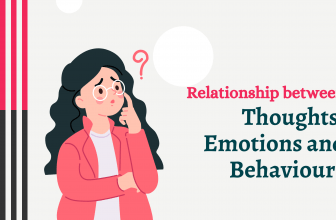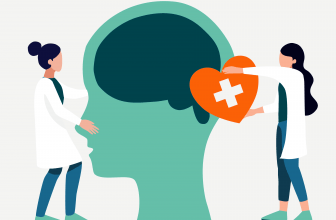Ms.Z, was married into a family of 15 people. A family which believed that the household chores are meant only for the women of the house especially the daughter-in-laws. A family which had brought up her husband as a male chauvinist. So her days passed by, running around, making the lives of everyone else except her own, comfortable. The man she had married was least interested in how she lived and what she wanted. So traditionally the women were conditioned with the thought that the lady needs to adjust per the circumstances. So Ms.Z kept adjusting through every walk of her life and always lived up to everybody’s expectations. However, this lead to a small issue for Ms.Z which was that she had developed a perpetual pain in her back and legs. This pain posed a great difficulty to her and was a huge hindrance in doing her day to day chores. She was taken to many doctors, all medical tests were done, but nothing could be diagnosed. Basis a suggestion from one of her friend she visited a mental health practitioner. And rest, as they say, is history. Now, Ms.Z is a person in control of her life, her emotions. She has not been able to change the situations, but has learnt how to manage herself. And, her pain, has also gone.
Like Ms.Z, there are so many people, especially women, who have all kinds of ailments which have no head or tail. But the ailment exists. Derived from psyche, which is the mind, and soma which is the body, psychosomatic indicates towards a mind that gives real physical symptoms to the body. This should not be confused with the state when people are constantly afraid of developing a serious illness. For example, constant pain in the back may indicate spondylitis. This, they announce without any tests or doctor’s diagnosis. Or with a temperature rise even to 99 degrees, they would start imagining big diseases for themselves.
What is psychosomatic pains?
Per definition, psychosomatic pain is physical pain that is caused, increased, or prolonged by mental, emotional, or behavioral factors.
Headache, back pain, or stomach pain are some of the most common types of psychogenic pain. It may occur, rarely, in persons with a mental disorder, but more commonly it accompanies or is induced by social rejection, broken heart, grief, lovesickness, or other such emotional events.
Psychosomatic illness is real. A famous psychologist studied the bodily expression of mental phenomena and concluded that mental tension can precipitate in the body through
(1) Muscular activities leading to a change of the body in relation to its environment; eg rheumatoid arthritis, other pains and aches.
(2) Laughter, crying, screaming, or speech; in short feelings of sadness, anger and awkwardness
(3) Respiratory, cardiovascular, and other visceral systems in other words illness
These are experienced by an individual as feelings, emotion, or other physical affects, which when repressed or suppressed, start accumulating in the body organs, giving the physical symptoms that the person starts expressing in terms of ailments.
There are many ailments which fall under the umbrella of ‘psychosomatic pains’. Some of these ailments are:-
•Nausea
•Muscle pain
•Headaches/migraines
•Increased heart rate or palpitation
•Chest pain
•Fatigue
•Tremors
•Gastrointestinal problems
So if a person has an anger issue, then it may affect their heart. This may in turn lead to a high blood pressure or some kind of heart ailments.
Similarly, if a person usually suppresses his or her anger it may affect their brain. This may lead them to develop different kinds of headaches or migraines, chronic back pain, or a condition called fibromyalgia in which they experience pain in all the muscles of the body and fell excessive tiredness including issues with sleep, memory and mood swings.
The same applies for people who deal with mild or severe anxiety too. Whatever be the level of anxiety (maybe they get anxious over small things or even bigger ones) they may experience issues with their stomach. They may develop irritable bowel syndrome characterized by pain in stomach, gas, diarrhea or constipation, or heart palpitations. In addition they may even have neck pain as a result of stress, anxiety, worry, sadness.
People who nurture resentment, where they hold a lot of grudge towards others may experience psychosomatic pains. It may affect their knees. This pain may also indicate ego clashes and stubbornness of the person too. In other words, if a person is not flexible and boasts a very rigid attitude their knees may have to face the brunt of this. Isme auto immune diseases jinme body ka immune system apne hi healthy cells par attack karne lagta hai, jaise ki rheumatoid arthritis, lupus, nerve damage leading to vision loss, impaired coordination, fatigue etc becomes a part of life.
Pain in the back could be because of many expectations placed on an individual and him or her trying to be a perfectionist, if you have fear of future, buried emotions or burden of finances.
Pain in hands indicates inability to connect with others and pain in the elbows is associated with stubbornness or resistance to change. Similarly, pain in the hips may be because of hurt emotions, heart break, anger, sadness.
Stress, wanting to run away from situations, jealousy can give rise to pain in the calves. Ankles hurt when one lives in uncertain or instable life conditions. And foot hurts when one harbours a lot of negativity or is hard on oneself.
This gives us an understanding that pain and ailments in our body are not only due to physical reasons. There is a load of emotions that are capable of giving you these very visible problems. Now the question is, how do we get to know if it is physical or mental. The only way out is to consult the doctor or a general physician. If all the tests are normal, and the specialist is not able to identify the cause or treatment of any persisting problem or if the medicines prescribed are not working, then this is a clear indication that it is time to visit a mental health practitioner. Since ages, we have just left the ailments, dismissing them with ‘it’s all in the mind he/she is perfectly normal.’ What we miss out is that it is actually an issue related to the mind or a mental issue. The very fact that it is mental means that it isn’t okay and that if left untreated it can result to be very problematic.
Also, there is this predominant misconception that a mental health practitioner or a psychologist or a hypnotherapist only ends up talking and not treating the problem. This very same talking can also be done by consulting with the elders or people with relevant experience. Here we would like to specify that it is not the case.
On the contrary, psychologists or psychotherapists use a lot of scientifically proven tools and techniques to help their clients achieve their desired outcomes or goals. Some of the techniques that would generally be used to treat a psychosomatic pain are:-






